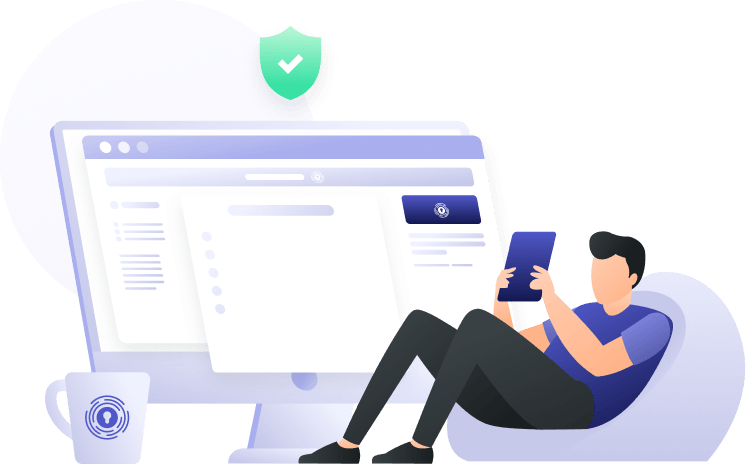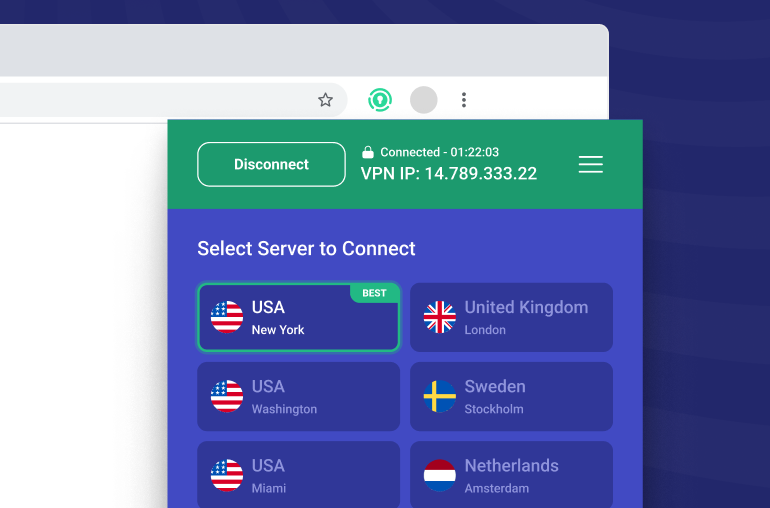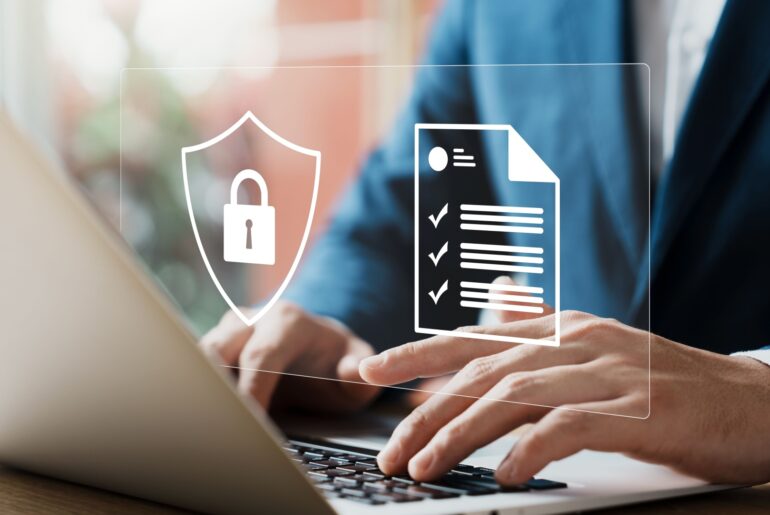Almost every VPN on the planet will advertise itself as a “no log” or “zero logs” VPN, but what does that actually mean? Is it just marketing hype, or is it something that can be relied on? Why is it so popular? Essentially, what is a zero-log VPN?
A zero-log VPN is a virtual private network that does not keep records of your activity while you are connected to their system. This seems straightforward enough, but there is a bit of nuance at play here. Fortunately, by reading on, you’ll know exactly what to look for to get the best zero-log experience.
What is a Zero-Log VPN?
The first thing to understand is that logs exist for a reason. They are necessary in troubleshooting and service improvement since they tell a company crucial information about how a product is performing. Even PrivadoVPN’s app allows you to access connection logs locally. If you’re having trouble using our service, you can send them to the support team so they can guide you to a solution.
We’re not talking about those logs, though. What we’re talking about primarily is activity logs kept nonlocally.
There is an excellent chance that your ISP keeps detailed records of your online activity. Not only do some have deals with marketers, but they also want to control certain types of data transfers. For example, a lot of Internet providers will purposefully limit the speed of your downloads. They are often suspicious of the protocol because of piracy or want to dedicate more bandwidth to other types of data.
When you’re using a zero-log VPN, your ISP can’t see what type of data is being transmitted. It can’t keep those records because all it sees is generic, encrypted information.

But What About the VPN?
Of course, your VPN could, theoretically, keep those same logs. They have less invested in slowing down your speeds, but lots of free VPNs pay for themselves by selling your activity logs. They could have detailed accounts of every website and online service you use.
What a zero-log VPN is saying when it uses that term is that they are not going to do that. They might keep certain pieces of information for a limited time, but in most cases, they aren’t going to track your activity.
What You Should Look For
As we mentioned above, even zero-log VPNs generally keep some logs, at least while you’re using the service. Without them, they wouldn’t be able to improve the service or solve technical issues. Here’s the minimum amount of information a VPN needs.
Anonymous Usage Data
In order to run a useful service, your VPN needs to see how well the network is performing. They may collect data related to speeds on various servers, data load, and how many people are connected. This lets them make adjustments to the network for better performance.
The key term is “anonymous.” What a zero-log VPN is recording never has to be tied to you directly. That shouldn’t be a part of their data collection.

Connection Time
Your VPN might also keep a record of how long you’re connected to the network at a given stretch. This could include the IP that you used to connect and which one you were assigned.
This can be a sticky one since that sounds like a lot of valuable data. That’s why you should always look to see if they retain these logs. Some zero-log VPNs will hold on to these records for a certain amount of time. Others, like PrivadoVPN, don’t retain that data at all, and it gets erased as soon as you disconnect from a server. In either case, again, this data should be anonymized and not connected to your account specifically.
Data Use
Some VPNs have limits on the amount of data you can use per month. For example, the PrivadoVPN Free account allows you 10GB of data every 30 days. We need to be able to track that and connect it to your account specifically.
That being said, a high-quality zero-log VPN will restrict how much they collect. Only the actual amount of data is absolutely necessary in order to utilize that sort of functionality.

What to Avoid
Beware of VPNs located in countries with very loose consumer privacy laws. In many cases, they are required by law to retain certain records for a specific period of time. This is so that police and government agencies can request it at will. Instead, focus on a VPN located in a country that values consumer privacy.
Stay away from any VPN that doesn’t explicitly say that they don’t record your online activity. It’s even better if they specifically call out browsing history, data types, traffic locations, DNS queries, etc. What is a zero-log VPN going to do with that data? Only they know, and they don’t need it.
Especially don’t sign up for any VPN that doesn’t have a publicly available, detailed privacy policy that lays out what they do and doesn’t collect.
Why does it matter what a zero-log VPN is and how it works? Because the name can mean a lot of different things. Knowing what makes you better equipped to genuinely safeguard your online privacy.
Almost every VPN on the planet will advertise itself as a “no log” or “zero logs” VPN, but what does that actually mean? Is it just marketing hype, or is it something that can be relied on? Why is it so popular? Essentially, what is a zero-log VPN?
A zero-log VPN is a virtual private network that does not keep records of your activity while you are connected to their system. This seems straightforward enough, but there is a bit of nuance at play here. Fortunately, by reading on, you’ll know exactly what to look for to get the best zero-log experience.
Download PrivadoVPN
Protect your privacy with a world-class VPN. Sign up for premium access to PrivadoVPN and get unlimited monthly data, access to 300+ servers from around the world, and up to 10 simultaneous connections. Get a top-rated VPN that can secure your privacy at home, at work, or on the go.
Sign up for PrivadoVPN today!




